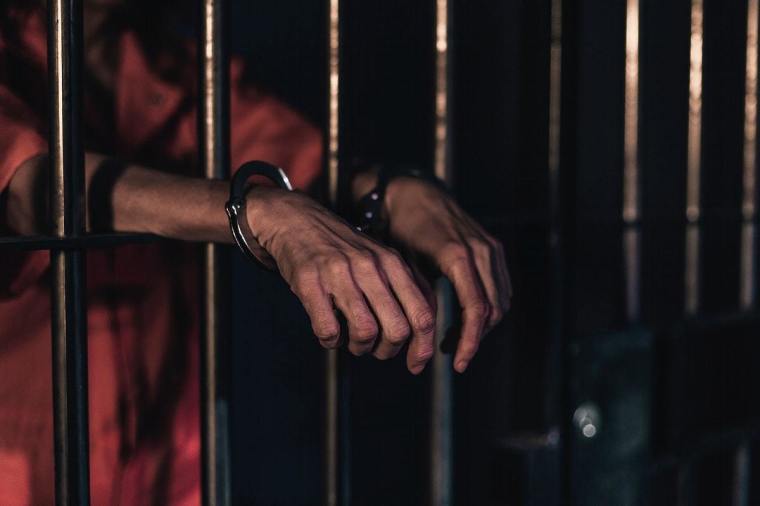| The Christian Post |
| January 9, 2024 |
| By Leah MarieAnn Klett |
|
|
|
|
Courtesy rawpixel |
In a case that has raised significant human rights concerns, a 28-year-old Mongolian Christian imprisoned on trumped-up charges is in critical condition after facing severe persecution in a high-security prison in Hohhot, Inner Mongolia.
According to U.S.-based persecution watchdog ChinaAid, Alamus, also known as Alamusha, originally from the Xilingol League of Inner Mongolia, was a student at the Shanghai Theater Academy. During a winter break in 2013, he attended a classmate reunion in his hometown when an altercation broke out at the event. Although Alamusha did not participate in the fight, he was charged as the main offender and sentenced to 15 years for intentional injury.
Alamusha's plight came to light following a video released by his aunt, which has been circulating on Chinese social media. The video alleges that Alamusha has been tortured in solitary confinement for nearly two months, with his life in imminent danger, because he refused to plead guilty to his “crimes.”
She claims that he was beaten by police officer Nie Yonggang and a gang member, resulting in a perforated eardrum. However, following his complaint to the prison authorities, Alamusha was reportedly placed in solitary confinement, shackled, and deprived of adequate food and warmth, leading to severe frostbite.
Another report from Bitter Winter notes that Alamusha was fed only one steamed bun to eat, and a small glass of water to drink every day. He was also forced to drink water from the urinal to survive.
Despite filing numerous complaints, Alamusha's pleas have gone unanswered, and his family's insistence on justice has reportedly led to further retaliation and torture.
“We are the most helpless herders, you all can’t bully people like this. A pitiful child cannot be like this, right?,” Alamusha’s aunt said in the video. “You all can’t torture the child to death, we request the Communist government to take this matter seriously.”
Du Wen, a former inmate and former deputy director of the Legal Counsel Office of Inner Mongolia. Du described the torture as far beyond what was mentioned in the video. He portrayed Alamusha as an honest, courageous and spiritually resilient individual who embraced Christianity while in prison.
China Aid notes that Alamusha's background as an orphan raised by his grandmother, with no significant connections, seemingly played a role in his scapegoating and harsh sentencing. His refusal to plead guilty has reportedly offended the prison authorities, particularly police officer Nie.
The Hohhot Prison, known for incarcerating individuals involved in serious crimes, is described by Du as a place where "all laws have become ineffective," raising grave concerns about the rule of law and the treatment of prisoners in China, especially religious minorities like Christians.
This case has attracted international attention, with human rights organizations calling for an immediate, fair and transparent investigation into the allegations of torture and wrongful imprisonment.
Christianity in Mongolia, a country located between China and Russia, is a minority religion, with Christians making up just 1.94% of the population, according to 2020 census data.
Since the end of communist rule in the early 1990s, an estimated 40,000 Mongolians have converted to Christian denominations, including Protestant, Catholic, Seventh-Day Adventist and others.
Lamaistic Buddhism and shamanism are the traditional religions of Mongolia. The majority of Mongolia's people groups — 23 out of 28 — are still considered unreached for the Gospel, according to Mission Eurasia.
Source: https://www.christianpost.com/news/imprisoned-mongolian-christian-in-critical-condition.html






 Beyond
Great Walls: Environment, Identity, and Development on the Chinese
Grasslands of Inner Mongolia
Beyond
Great Walls: Environment, Identity, and Development on the Chinese
Grasslands of Inner Mongolia China's
Pastoral Region: Sheep and Wool, Minority Nationalities, Rangeland
Degradation and Sustainable Development
China's
Pastoral Region: Sheep and Wool, Minority Nationalities, Rangeland
Degradation and Sustainable Development The
Ordos Plateau of China: An Endangered Environment (Unu Studies on
Critical Environmental Regions)
The
Ordos Plateau of China: An Endangered Environment (Unu Studies on
Critical Environmental Regions)